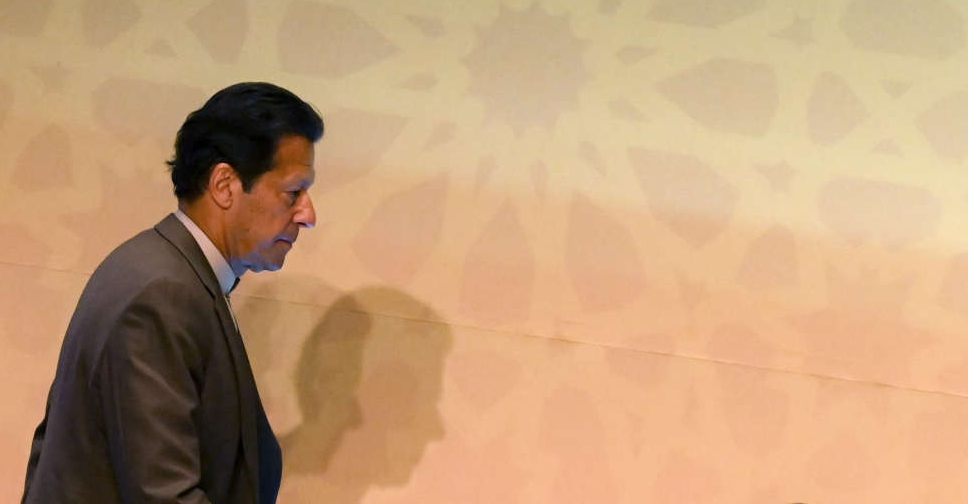
Pakistan's top court hopes to wrap up on Thursday a hearing on Prime Minister Imran Khan's obstruction of an opposition bid to oust him, a manoeuvre his critics say was unconstitutional.
Former cricket star Khan lost his parliamentary majority last week and was on the verge of being forced from office by a no-confidence vote tabled by the opposition on Sunday.
But the deputy speaker of parliament, a member of Khan's party, threw out the motion, ruling it was part of a foreign conspiracy and unconstitutional. Khan then dissolved parliament.
The stand-off has thrown the country of 220 million people, ruled by the military for extended periods since independence in 1947, into a full-blown constitutional crisis.
The opposition has challenged the decision to block the vote in the Supreme Court, which began deliberating the case on Monday. The court is due to reconvene on Thursday for a fourth day at 9:30 am (0430 GMT).
Chief Justice Umar Ata Bandial said on Wednesday he wanted to wrap up the hearing.
"Let's start early from tomorrow to conclude the case," he said at the end of a session in which defence lawyers offered a justification for Khan's actions.
Khan's supporters have argued that the opposition bid to oust him with foreign support was unconstitutional. Opposition leaders have rejected that.
The court could order parliament to be reconstituted, call for new elections or bar Khan from power if he is found to have violated the constitution.
It could also decide that it cannot intervene in parliamentary affairs.
The military has stepped in to overthrow civilian governments and rule the country on three occasions citing the need to restore order. It has denied any involvement in the current crisis.

 UK inquiry finds 'chilling' cover-up of infected blood scandal
UK inquiry finds 'chilling' cover-up of infected blood scandal
 Iranian President Raisi killed in helicopter accident, state media says
Iranian President Raisi killed in helicopter accident, state media says
 ICC prosecutor seeks arrest warrants for Israeli, Hamas leaders
ICC prosecutor seeks arrest warrants for Israeli, Hamas leaders
 Assange given permission to appeal against US extradition
Assange given permission to appeal against US extradition
 Israel intends to broaden Rafah sweep, Defence Minister tells US
Israel intends to broaden Rafah sweep, Defence Minister tells US




